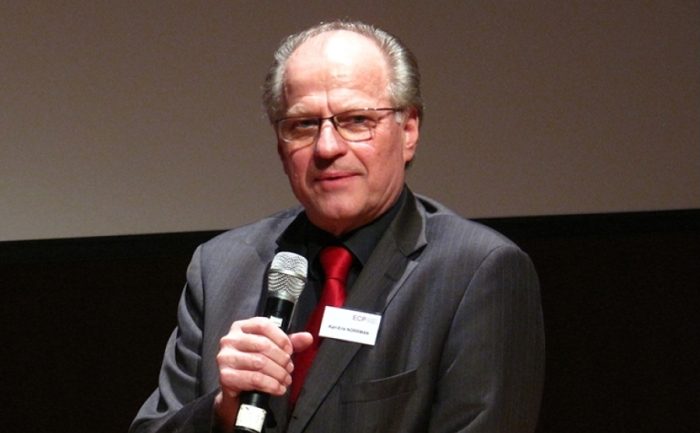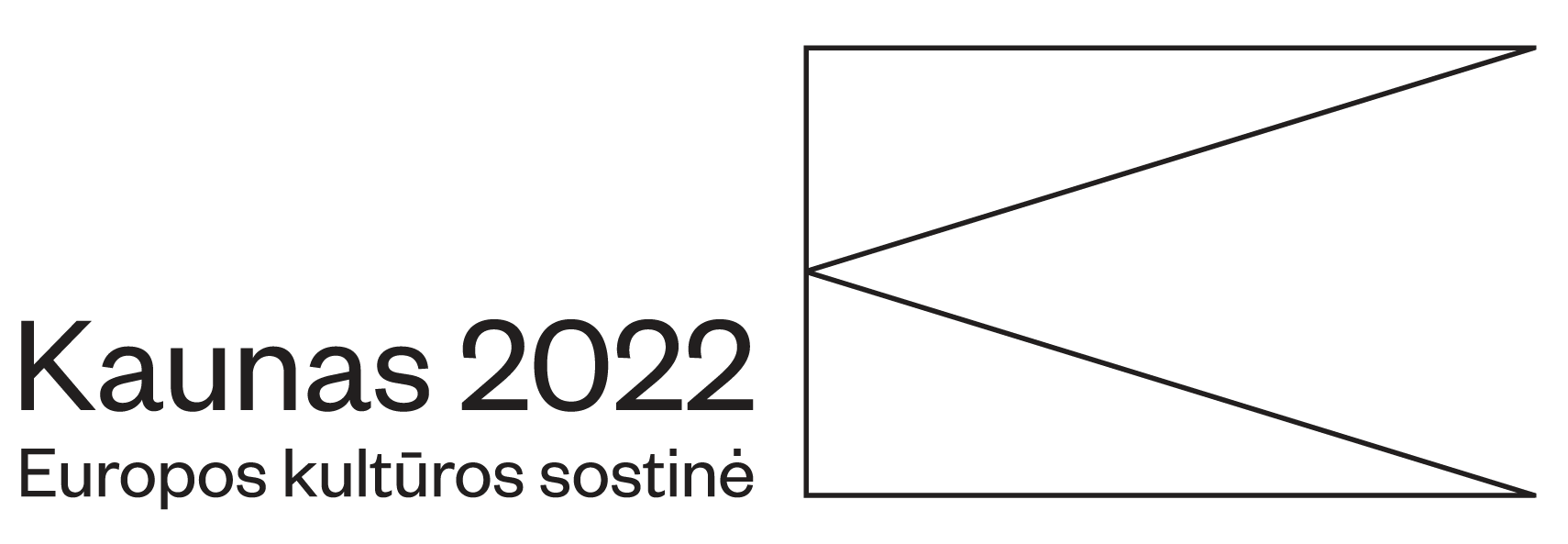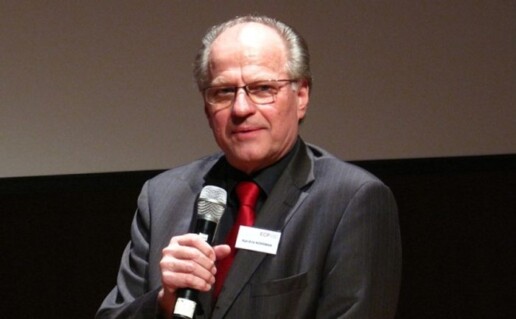Karl-Erik Norrman: it’s very important to defend European values today

“This year, it’s very important to defend European values: in times of war and opposition against democracy, human rights, freedom of movement etc. That will be one of the main reasons of our meeting in Kaunas. We also think it’s significant that we’re meeting in a university – here we will discuss the promotion of the role of universities in European cultural cooperation”, says ambassador Karl Erik Norrman, founder and Secretary General of the European Cultural Parliament (ECP). On 8–11 September, he will participate in the ECP’s session in Lithuania – at Vytautas Magnus University and the premises of Kaunas the European Capital of Culture 2022.
During the session of the European Cultural Parliament, Kaunas will be visited by ECP members, which include independent artists, writers, musicians, historians, philosophers, designers and representatives of other cultural fields from Great Britain, Sweden, Greece, Ireland, the Netherlands and other European countries. During the session, discussions, creative workshops and exhibition openings will be held. At the events, which will open to the public, topics related to Europe and its culture will be discussed: the role of universities in the European capitals of culture, cultural diplomacy, the role of culture in the context of war and other matters. Understandably, Ukraine will also be remembered: not just in discussions but in exhibitions as well. At VMU Great Hall, an exhibition by Ukrainian photographer Oleksandr Zakletsky will be exhibited.
“You can say that this year Ukraine is becoming a symbol of cultural diplomacy. In these very difficult times, Ukraine is doing a great job. We hear and see a lot of Ukrainian artists promoting their case as Europeans, as democrats etc. President Zelenskyy himself is a great cultural diplomat, he’s speaking to the whole world about European values”, – explains Karl-Erik Norrman, who is not only one of the founders of the ECP but also works as a lecturer of cultural diplomacy at the Institute of Cultural Diplomacy in Berlin. According to him, the importance of cultural diplomacy is growing every year.
The Secretary General of the ECP also has many compliments to Lithuania and Kaunas, which is the European Capital of Culture this year and is holding various cultural events. “It is a very good program, and you’re doing it in a very tough time, with a lot of threats and pressure from your big neighbour. I think the Lithuanian approach is really to be praised. Our slogan is “to put culture first”, and we hope that Lithuania will continue to put culture first”, Karl-Erik Norrman says, expressing admiration of the program of Kaunas the European Capital of Culture.
He is also glad that in October, the VMU Agriculture Academy in Lithuania will host an international conference organised by the University Network of the European Capitals of Culture (UNeECC). This network aims to strengthen the role of universities in the events of European Capitals of Culture.
“This cooperation is very important: it will certainly inspire other universities to more actively participate in the cultural capitals. I think VMU is better than European average in this regard. Generally, I think it’s very important for universities to promote humanities and arts in their syllabus so that their place would not be taken by the more “concrete” sciences. I’d encourage VMU to take a strong role in promoting culture and cultural cooperation”, says the ECP Secretary General.
The European Cultural Parliament was founded in 2001, in the premises of the Council of Europe in Strasbourg, in order to ensure that independent artists would be heard in order to balance the growing influence of technocracy. “Ethical and aesthetic values must be the essence of a new European Society. We also say that culture is the core of society and creativity is the source of human existence. ECP aims to amplify the voices of independent artists and to intensify the dialogue between artists and other creative individuals. So we’ve created a forum at the ECP for continuing dialogue year after year, for 28 years. We might say that we give globalisation a kind of human dimension through this forum”, claims Karl-Erik Norrman.
In total, ECP has 160 members from 43 European countries. The parliament organises various international projects, e.g. between musicians, philosophers and visual artists from Italy, Austria, Denmark and other countries. ECP has also contributed to political changes at the European level.
“An ECP research group looked at the economic role of culture in Europe. We came to the conclusion that the economic role of the creative sector had been underestimated before. We presented this report to the President of the European Commission and, as a result, the following year the EU started showing in its statistics that the cultural and creative sector represents some 3 percent of the total European GDP and almost 4 percent of the labour force. The people in the culture sector are working on a lower income level than the average but they are very important”, emphasises the Secretary General of the ECP, noting that the parliament contributed to changes in the European institutions’ agenda and promoting cooperation of European artists.
The European Cultural Parliament will hold its Kaunas session on 8–11 September at Vytautas Magnus University (VMU) and the premises of Kaunas the European Capital of Culture 2022. During the session, which is open to all representatives of culture and members of the public, various topics related to Europe and its culture will be discussed, including, but not limited to, the role of universities in the European capitals of culture and the culture of Europe in general as well as the particularly topical issues of cultural diplomacy and the role of culture in the context of war.
The founders of the ECP include Finland’s former Minister of Foreign Affairs Pär Stenbäck, former Swedish diplomat, opera soloist, professor of international relations Karl-Erik Norrman, author of The Illustrated History of Europe Frederique Delouche and others. Senators of the parliament: Benjamin Bradshaw – former British Minister of Culture, Erna Hennicot-Schoepges – former Minister of Culture of Luxemburg, Memli Krasniqi – former Minister of Culture of Kosovo, Ivaylo Znepolski – former Minister of Culture of Bulgaria and others. Past members of the ECP included journalist Anna Politkovskaya and philosopher, culture politician Leonidas Donskis, who have sadly passed away. This year the ECP is joined by the Dean of VMU Faculty of Arts, Professor Jurgita Staniškytė, lecturer of VMU Music Academy, pianist Rimantas Vingras and head of Kaunas 2022 Virginija Vitkienė.
Participants of ECP Kaunas session must register online (HERE) before 6 September.
The event will be held in English.
Website of the European Cultural Parliament
The ECP Kaunas session is part of the program of Kaunas the European Capital of Culture 2022.
About Karl-Erik Norrman
Ambassador Karl-Erik Norrman is founder (2002) and Secretary General of the European Cultural Parliament (ECP), the only Pan-European forum for cultural personalities of all sectors of Arts. The ECP has 160 members from 43 European countries.
As a Swedish diplomat for 30 years he served i. a. in Moscow, Beijing, Geneva and Rome, dealing mainly with foreign policy, trade negotiations, cultural affairs, development cooperation, humanitarian affairs and the United Nations. As Ambassador since 1989 he was posted in Spain and Swedish Commissioner General at EXPO 92 in Seville. In 1994, Karl-Erik Norrman was appointed the head of the Cultural Department of Sweden’s Ministry for Foreign Affairs. From 1995 he was Executive Member of the Commission for Sweden Promotion Abroad at the Foreign Ministry. Norrman has also been an opera soloist (tenor) and is the author of more than 30 books about democracy, world population matters, Germany, China, India, UN, theatre, opera, design, food and other topics. He participates in the public debate in Swedish, German, British, Scandinavian and other international media and conferences. Since 2010, he has been guest lecturer of cultural diplomacy and European affairs at the Institute for Cultural Diplomacy, ICD, in Berlin. He is member of several International Boards, e.g. Place Branding and Public Diplomacy, London, Institute of Cultural Diplomacy, Berlin, Vizar Architectural Competition, Sofia, Music Mind Trust, Sussex, Harald Edelstam Human Rights Foundation, Stockholm, Fondazione Love Difference, Biella and Population Matters, London.


